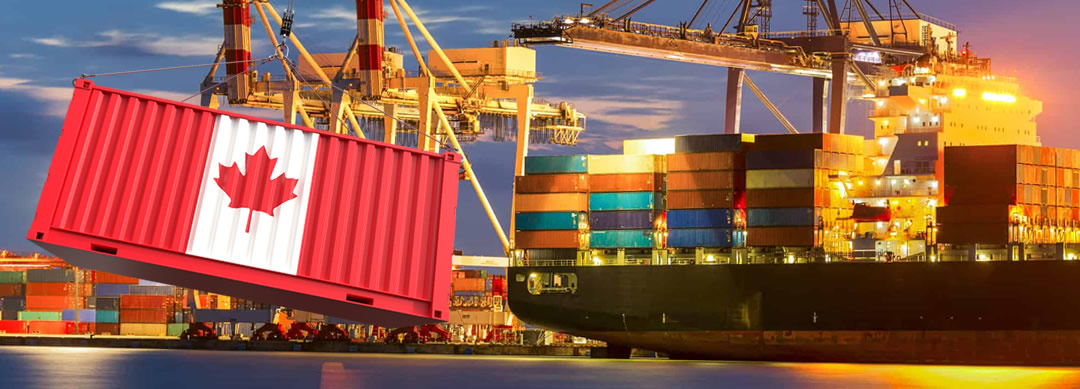Investments in the electric power and basic sanitation segments show the capacity of Brazilian infrastructure to attract financial resources
By Sérgio Siscaro
Brazil has begun 2021 showing signs that it should undergo a process of economic recovery throughout the year, as demonstrated by the 1.2% increase in Gross Domestic Product (GDP), in the first quarter. At the same time, direct investments in the country, in the first quarter, totaled US$ 21.253 billion, an increase of 49% compared to the same period of the previous year.
These indicators suggest a positive environment for foreign investors in search of opportunities, particularly in the infrastructure segment, which has historically required investments to sustain the economy’s growth. In anticipation of this trend, Canadian pension funds have already been focusing on the sector’s potential in the country, and two of them have intensified their presence here in Brazil.
The Ontario Teacher’s Pension Plan has recently acquired, from TPG Capital, the control of the company Evoltz, which operates six electric power transmission lines in Brazil. On its turn, Canada Pension Plan Investment Board (CPPIB) took control of 45% of Iguá Saneamento (Iguá Sanitation), which, at the end of April, bought one of the auctioned blocks of Companhia Estadual de Águas e Esgotos do Rio de Janeiro (Cedae) (State Company of Water and Sewage of Rio de Janeiro).
With an eye on decarbonizing of the economy
If the acquisition of Evoltz demonstrates an OTTP strategy to be present in the electricity segment (the fund had already bought 40% of the capital of the Finnish distributor Caruna), it also indicates the capacity of the Brazilian infrastructure in attracting investors. According to OTTP’s Director of External Communications, Dan Madge, the fund is constantly looking for opportunities aligned with its investment strategy. “From a sustainability standpoint, the power transmission segment is particularly attractive, as a result of its importance in the decarbonization process of the economy, and, in Brazil, because of the preponderance of renewable energy sources”, he stated.
“For Evoltz, transforming it into an attractive company for new investors was a goal, ever since the company acquired assets in a court receivership. This is the basic role of a private equity fund. The arrival of OTPP as a shareholder materializes this achievement”, says Evoltz’s CEO, João Nogueira Batista. According to him, in less than three years, the company has consolidated itself as an important player in energy transmission lines in the country, Brazil, operating seven concessions with more than 3,500 km of transmission lines.” As from the approval of the transaction, Evoltz will establish a strategic growth plan, in conjunction with OTTP. The sector will present several new growth opportunities in the course of time, through auctions”, he complements.
The acquisition of Evoltz, by OTTP, was the first investment made directly by the fund in Brazil. The value of the transaction was not disclosed.
Sustainable sanitation
At the end of April, the auction of Cedae’s assets was held, and its Block 2, which encompasses the areas of Barra da Tijuca, Jacarepaguá, and two other municipalities, was acquired for R$7.286 billion by Iguá Saneamento (Iguá Sanitation), a company that has held 45% of its capital in CPPIB since the beginning of the year. The fund, which has been operating in Brazil since 2014 as a partner of companies such as Votorantim and Cyrela, invested R$1.178 billion to complete the operation. Iguá already has among its shareholders Alberta Investment Management Corporation (AIMCo).
According to Rodolfo Spielmann, head for Latin America at CPPIB, the investment reflects the high demand for water treatment and basic sanitation services in Brazil. “The segment offers the prospect of a consistent and stable payback, and is perfectly compatible with our expectations, as long-term investors”, he declares. In addition, he points out that, with the changes brought about by the legal landmark of sanitation, nearly a thousand municipalities throughout the country are expected to privatize, or seek concessionaires, in the next few years. “We believe that Iguá is well positioned to be a powerful competitor in the new auctions that will be held”.
On the Iguá part, the arrival of the fund is most welcome, and may even help the company advance in its efforts to act according to an agenda concerning environmental, social, and governance (ESG)”. The arrival of CPPIB amplifies Iguá’s ESG strategy, leveraging the company’s value creation perspective and reinforcing the company’s vision of being one of the leaders in this field, in Latin America”, says CEO Carlos Brandão, recalling that the company has been a member of the United Nations (UN) Global Compact, since 2020.
In his view, CPPIB will also contribute to Iguá’s plans regarding Cedae’s Block 2. “The funding will come essentially from an additional contribution from the shareholders, mainly from CPPIB and AIMCo, and from financing. The company already has a bridge loan negotiated with private banks, with the purpose of meeting the immediate need for resources, until the final instruments are contracted”, he explains.
Perspectives for the future
While the Brazilian economy shows signs of recovery, other signs can cause some concern for investors, such as legal insecurity of contracts, brought about by the political instability. However, for the coordinator of the course of Ciências Econômicas (Economics Sciences), from Fundação Armando Álvares Penteado (Faap) (Armando Álvares Penteado Foundation), Paulo Dutra Costantin, this factor would no longer have so much weight, in reason of the reforms that have been made in the economy.
“Minister Paulo Guedes [Economy], a few days ago, said that Brazil is cheap because of the exchange rate. I agree; this is certainly an important incentive for foreign investors, so that they can invest actively in acquiring Brazilian companies. We also had some institutional changes, such as the labor reform, under Temer’s government, and afterwards the Social Security reform, to contain public spending”, Constantin points out.
In his opinion, there would be a greater consensus today on the need for monetary and fiscal stability, and on changes that could contribute to reducing the cost of labor in the country”. The autonomy of the Central Bank is also important, since the Bank has now the function of taking care of the value of our currency, regardless of who is sitting in the Presidential chair. This provides a guarantee that the government will not make populist monetary policy. Now, we need to implement fiscal reform”, he adds”. All these changes make the economic environment more attractive for foreign investments to come to the country. Solving the question of legal insecurity is what will guarantee the entry of long-term foreign capital here in Brazil.”





